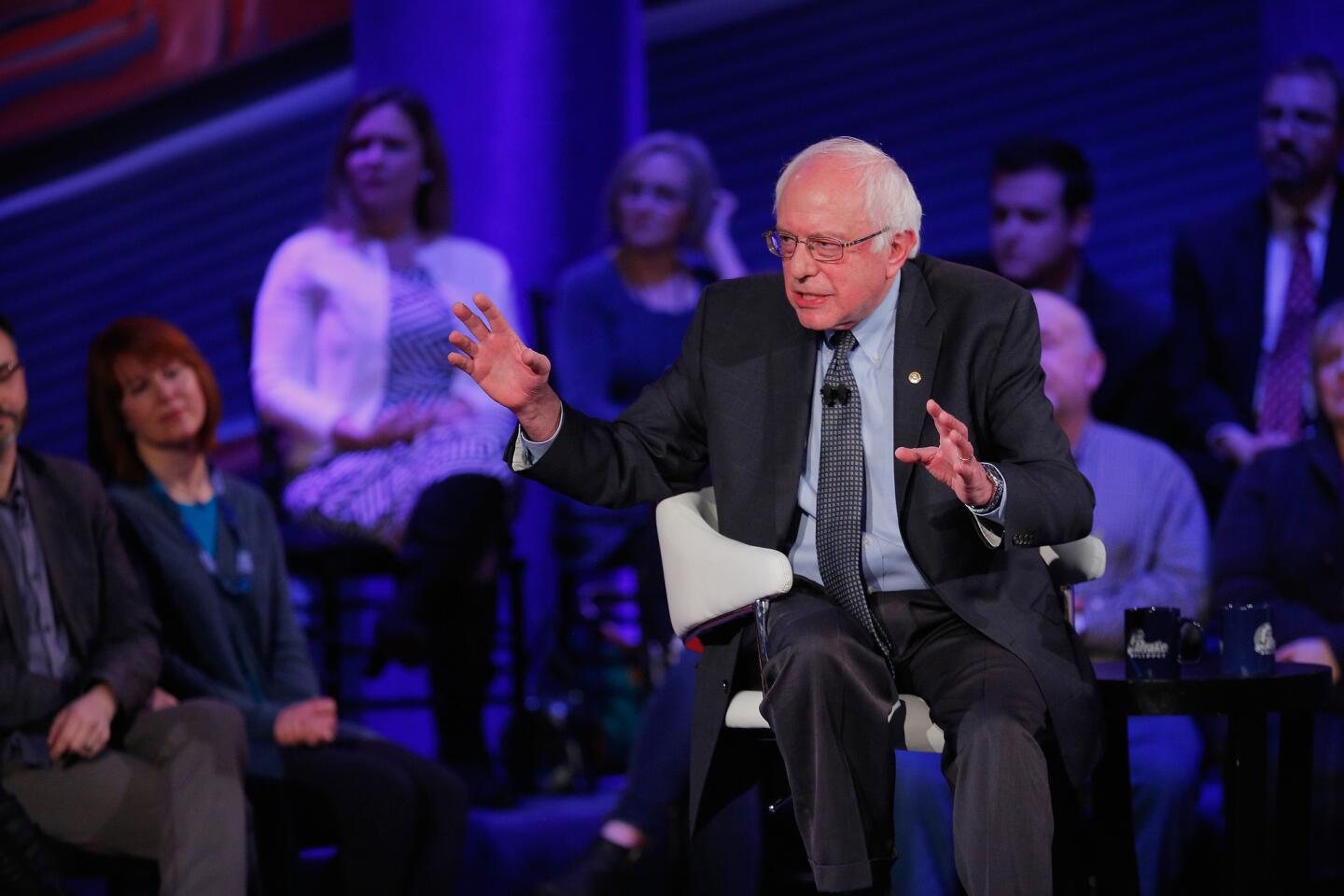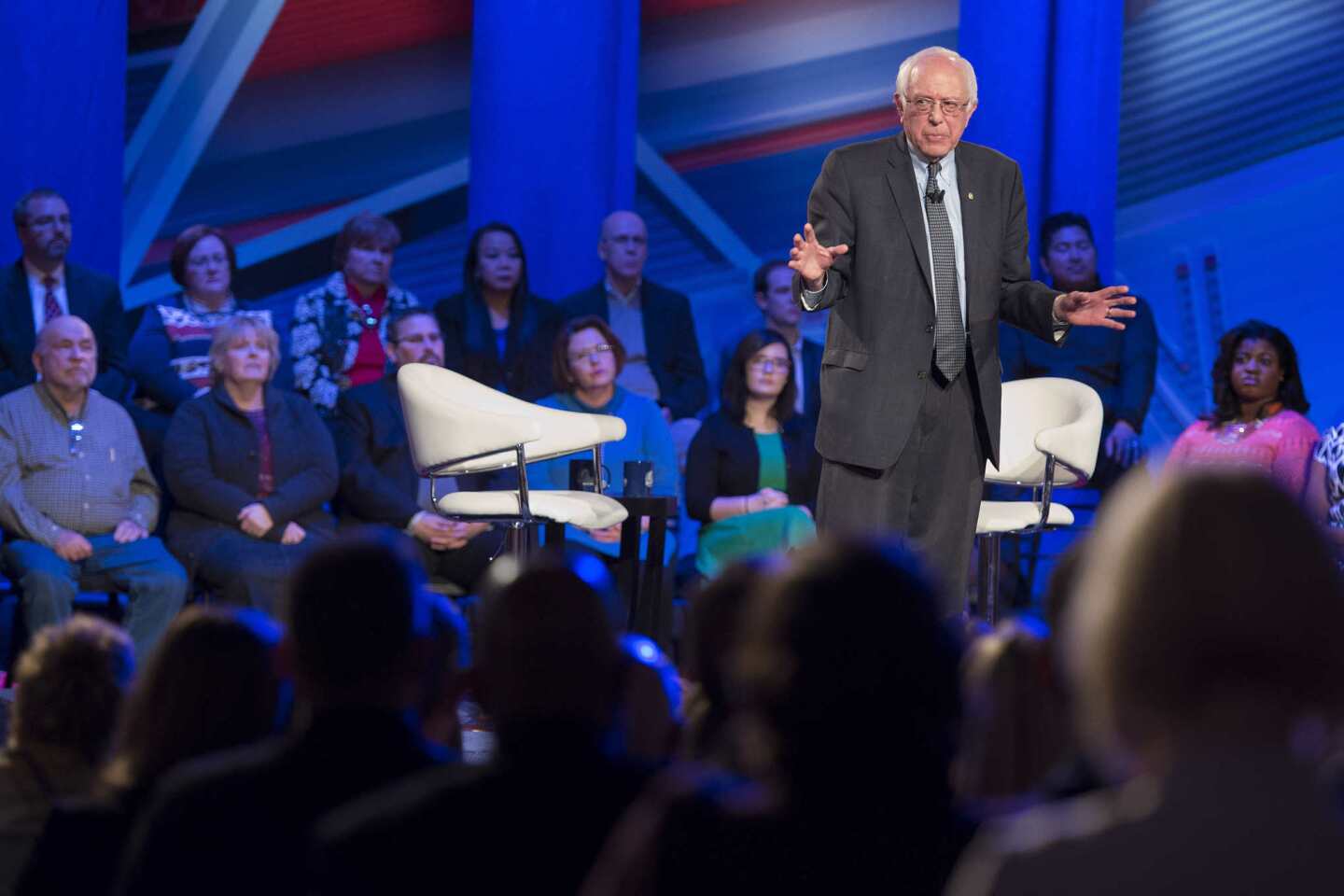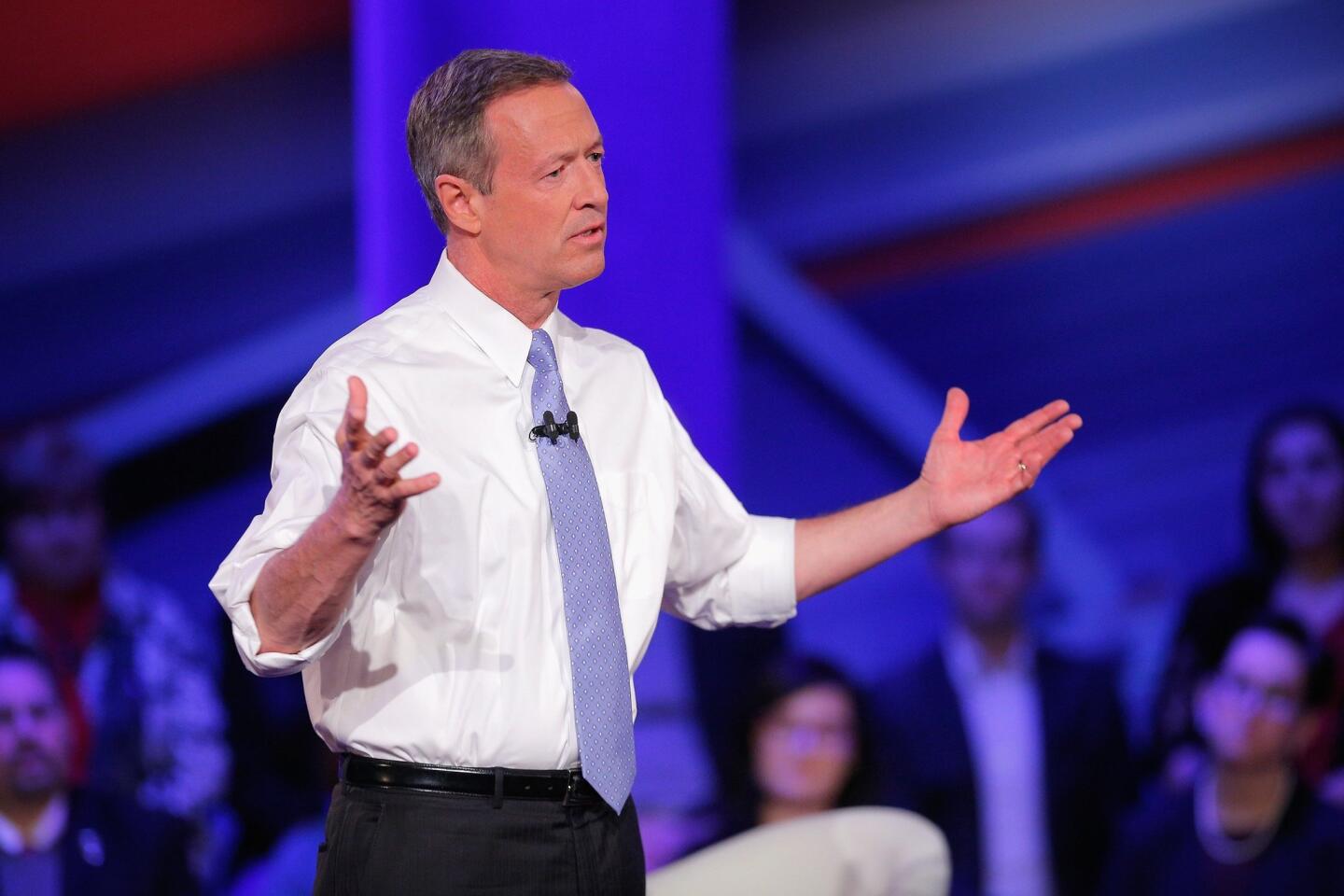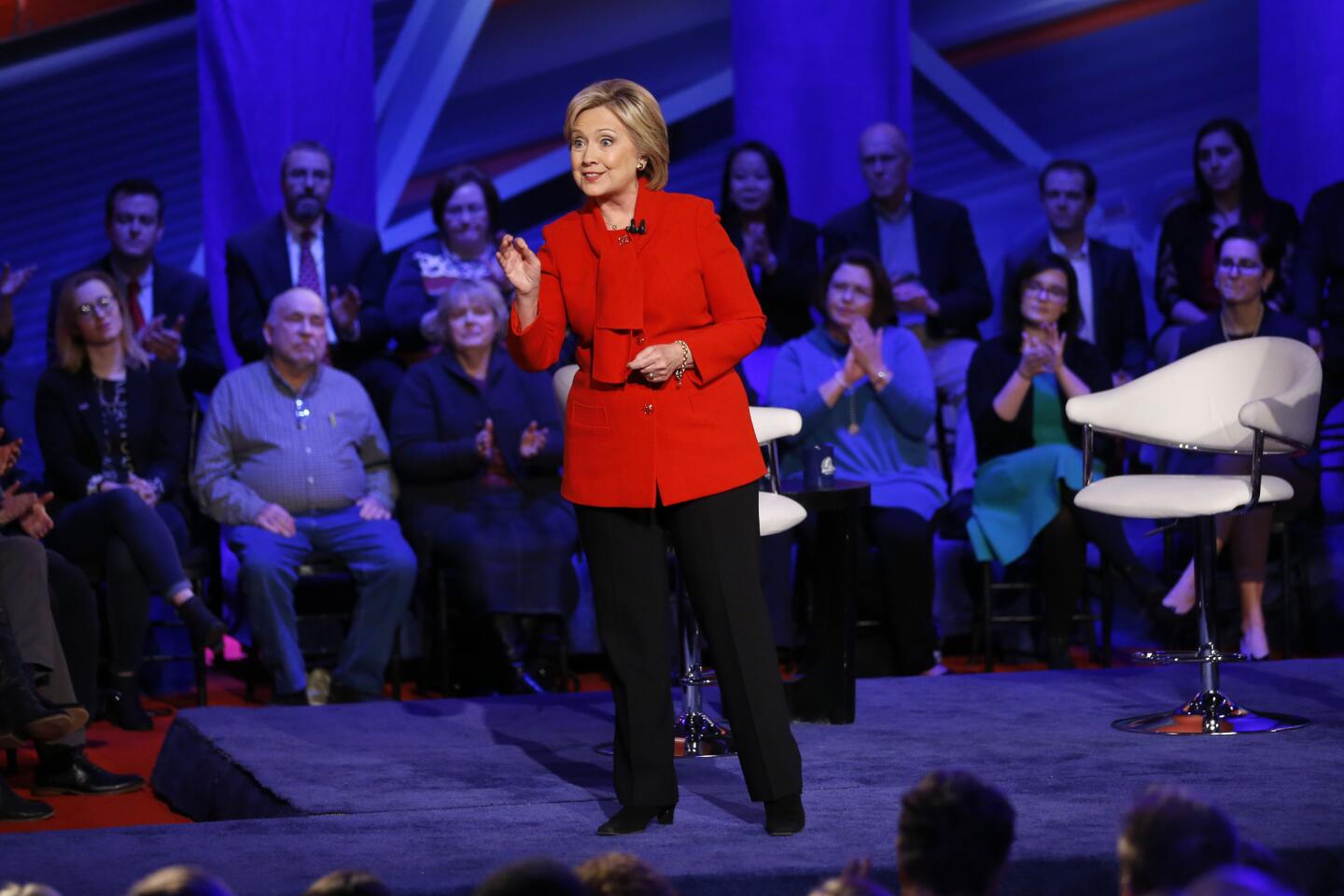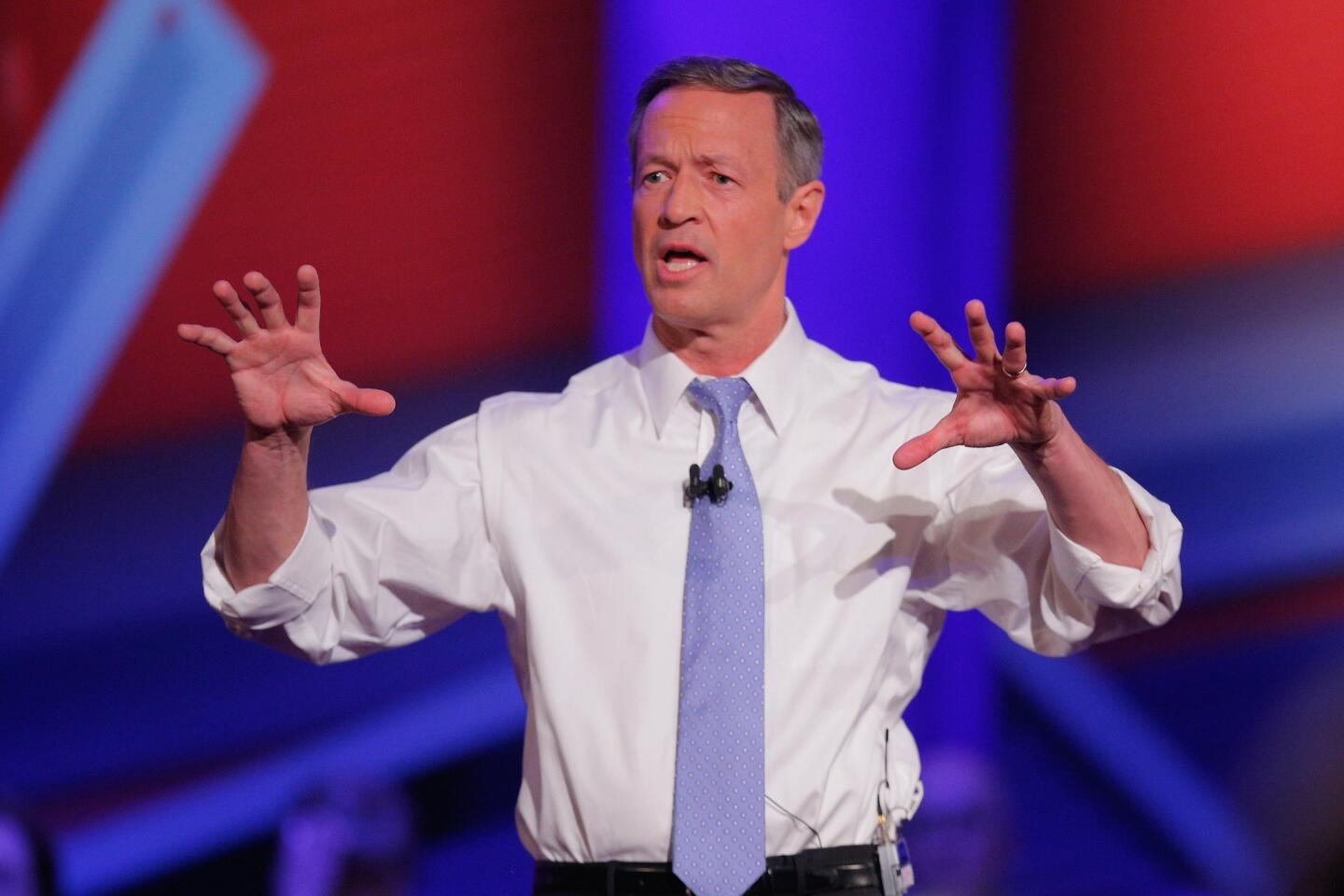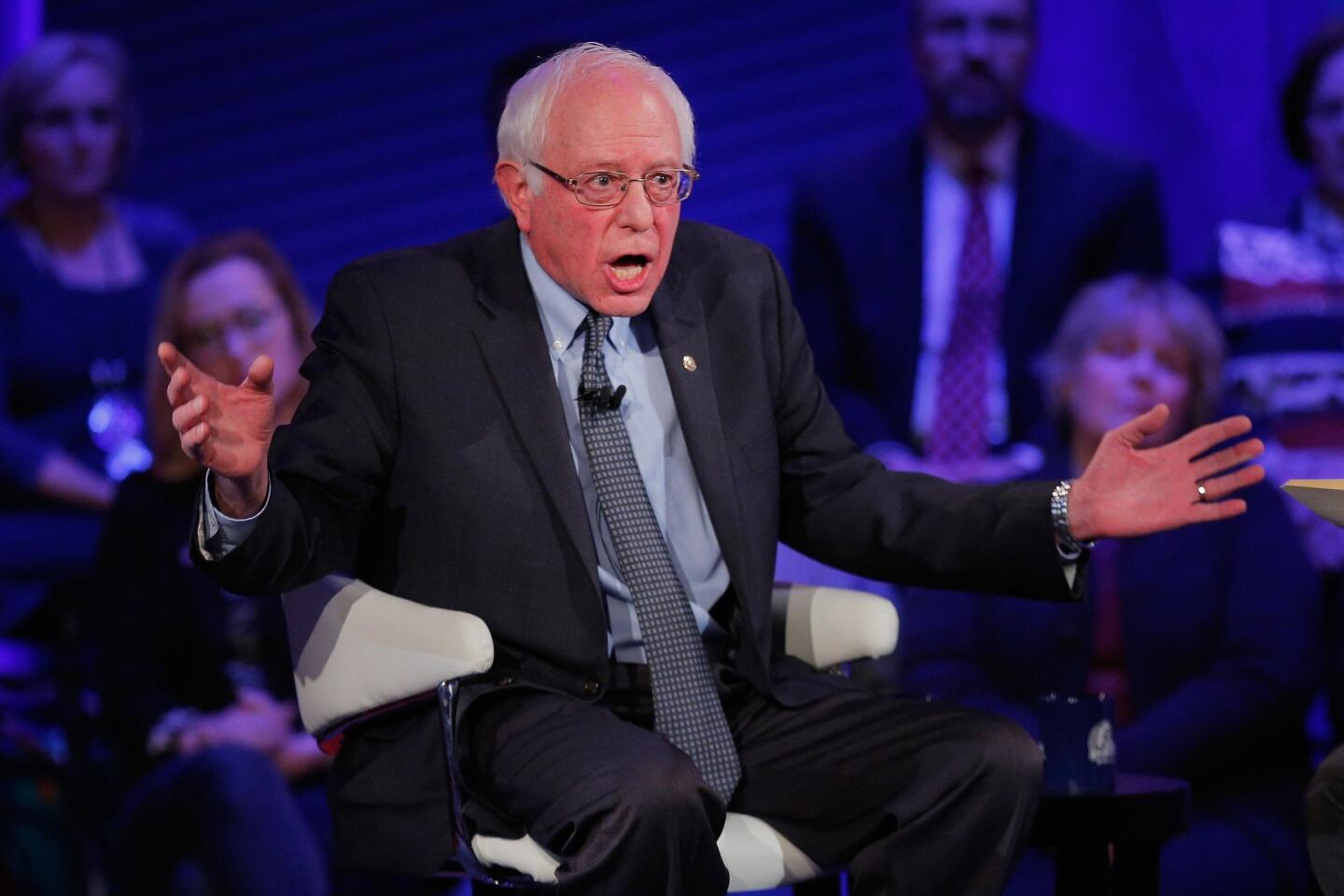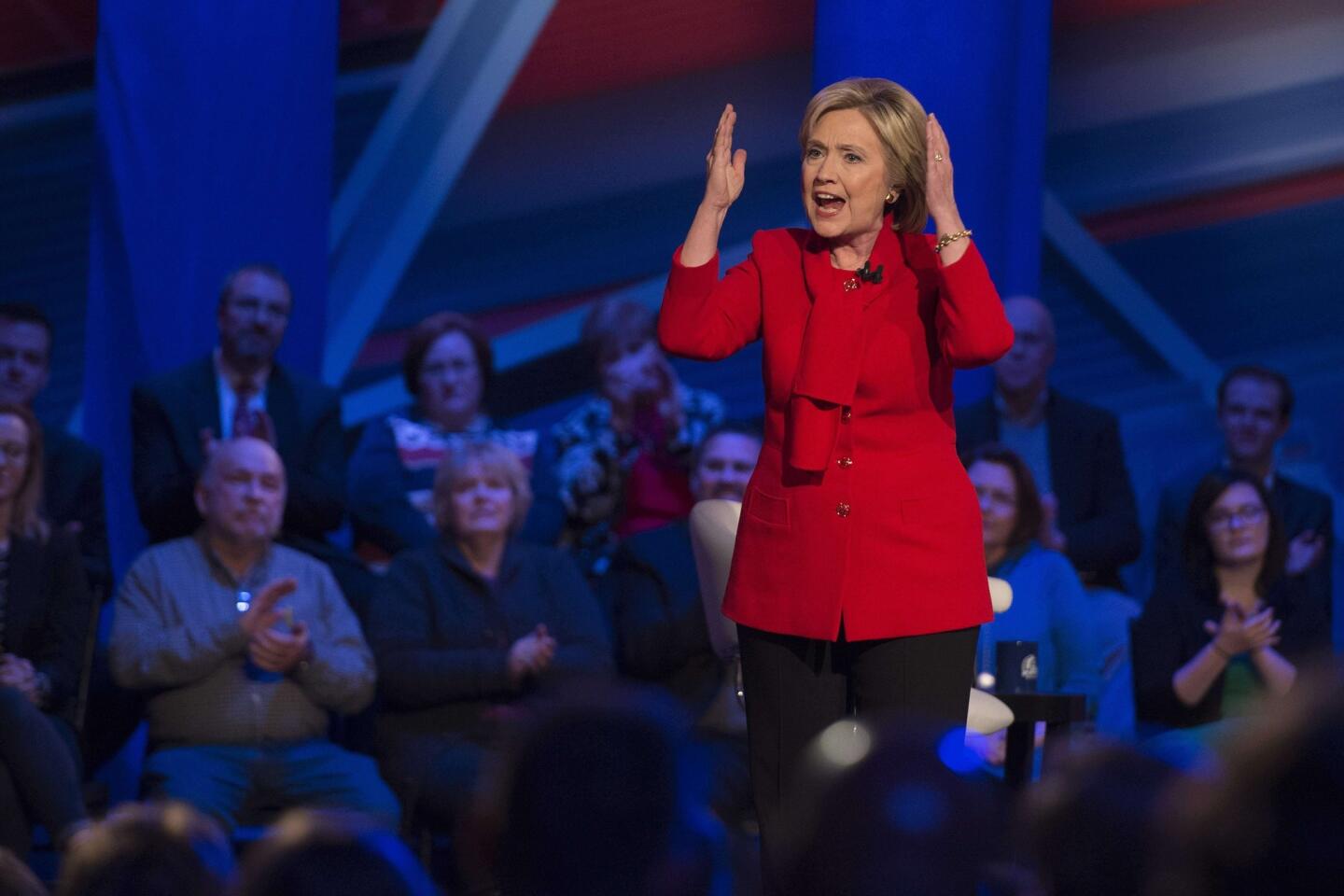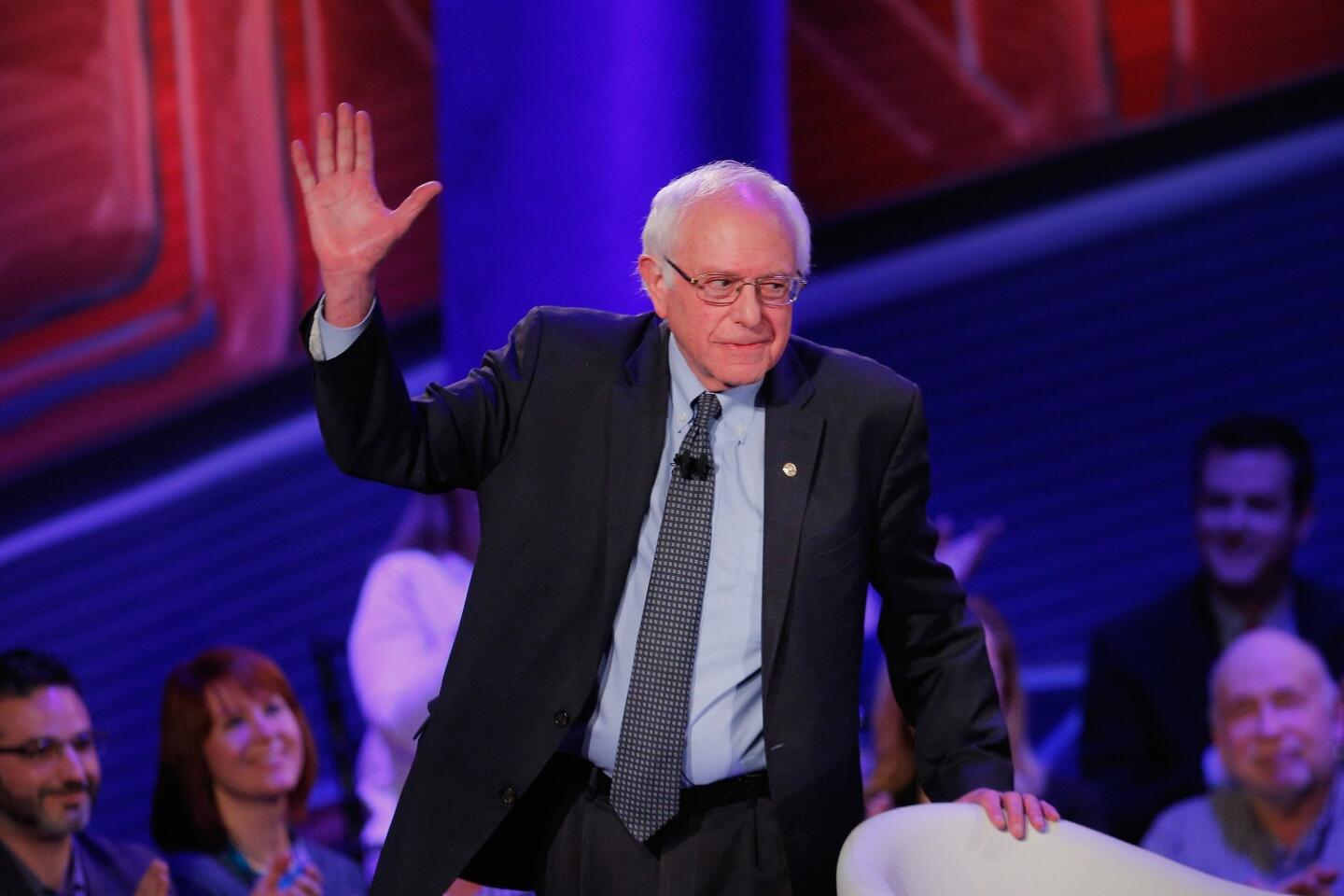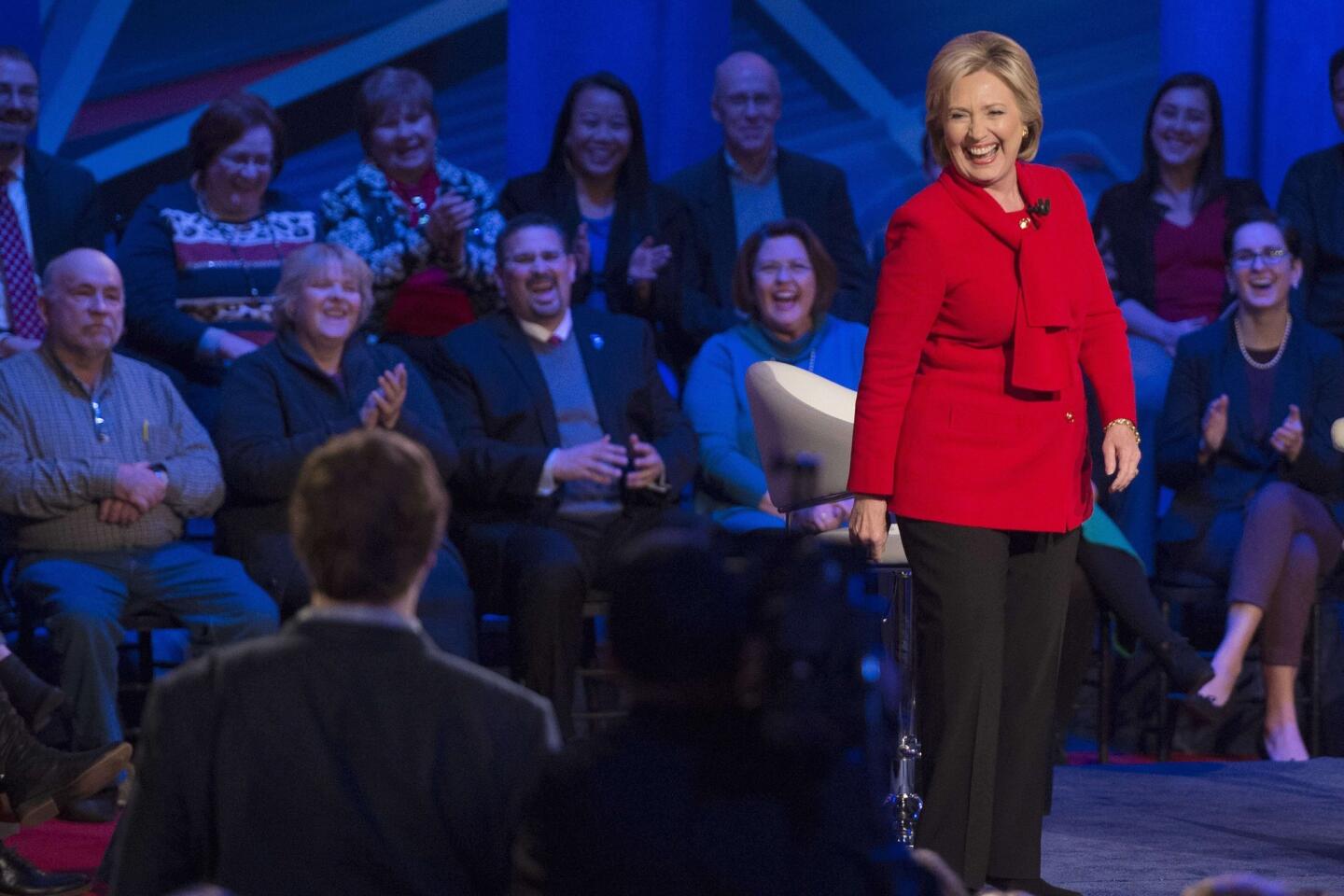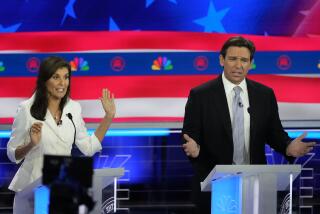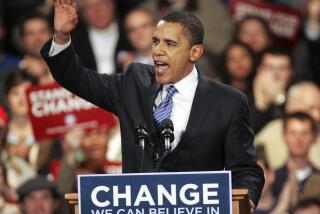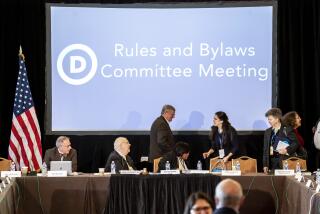Sanders and Clinton clash on judgment and experience in Iowa town hall
Sen. Bernie Sanders defended his call for higher taxes to fund an expansion of safety net programs and Hillary Clinton downplayed concerns about her rival’s surprising strength in the nomination battle as the leading Democrats made their final major pitch Monday to Iowa voters one week before the nation’s first presidential nominating contest.
Rather than a traditional debate format, Sanders, Clinton and former Maryland Gov. Martin O’Malley held separate extensive question-and-answer sessions in what amounted to a final prime-time job interview before the leadoff Iowa caucuses on Feb. 1.
The forum hosted by CNN, in which Sanders led off, presented the Vermont senator with some of the most pointed questions to date about the details of his broad call for a “political revolution.” That rallying cry has helped position him within reach of a major upset in the first voting contest of the Democratic presidential nomination fight.
Clinton, meanwhile, presented herself as a champion for the nation’s struggling middle class but one with a track record of success, even working with Republicans to achieve her goals.
Answering a young voter’s question about the seeming lack of enthusiasm for her campaign, Clinton insisted she had “been on the front lines of change” throughout her career.
She also referred multiple times to a new interview in which President Obama praised his 2008 rival for the nomination as a “good, smart, tough” person up against a “bright, shiny” new alternative, Sanders, who hasn’t been as fully tested.
“It’s a tough campaign, and it should be because it’s the hardest job in the world,” she said. “I’m really having a good time.”
In what has become an increasingly contentious period of the campaign, with polls showing a tight battle in the early voting states of Iowa and New Hampshire, Clinton has put her resume up against the Vermont senator’s in arguing she is the candidate most qualified to serve as president.
Asked about that Monday, Sanders responded that he not only had the background, but also the judgment required of the job.
He pointed to his 2002 vote against authorizing the Iraq war as an example of his good judgment. Clinton, he noted, had voted in favor of allowing President George W. Bush to go to war.
Answering questions from voters about his philosophy and proposals, Sanders largely stuck to familiar arguments against a government “dominated by the billionaire class.”
See more of our top stories on Facebook >>
“What this campaign is about and what I believe in is creating a government that works for all of us, not just a handful of people on the top,” he said, citing his standing in the polls as evidence he was “touching a nerve” with the country.
The town hall format required Sanders to give a more complete explanation for his plans to fund a Medicare-for-all healthcare system and free college education.
“We will raise taxes; yes, we will,” he said of his health plan, while insisting that most Americans would still save overall because they wouldn’t pay health insurance premiums.
He also said Americans would rise up to support his call for new revenues from Wall Street to pay for his plans.
“I believe that after the working families of this country bailed out Wall Street, maybe it’s their time to help the middle class of this country,” he said.
Polls show Sanders is locked in a tight battle with Clinton. The pair offer somewhat similar visions but contrasting strategies: Clinton has pitched herself as a pragmatic progressive who will build on President Obama’s efforts, while Sanders has had unexpected success with his calls for a political revolution to fight inequality.
O’Malley has struggled to draw support in what’s essentially become a two-candidate contest, though his supporters could tip the balance in the Iowa caucuses next Monday.
By contrast to Sanders, who received mostly gentle questions from the audience, O’Malley, who spoke second, was hit by a tough challenge at the start. A young black woman asked him about his record as a tough, anti-crime mayor of Baltimore from 1999 to 2007, which she said led to arrests of more black residents.
TRAIL GUIDE: All the latest news on the 2016 presidential campaign >>
O’Malley defended his record, saying that when he took office, the city was “burying 300 young, poor black men” each year. “Black lives matter,” he said, telling the story of a family whose home was firebombed by a drug dealer to retaliate against their reporting illegal activity to the police. While he was governor, his state had succeeded in reducing crime and cutting imprisonment rates at the same time, he added.
O’Malley was also asked what advice he would give his supporters if they fall short.
In Iowa’s caucuses, a candidate must get support from 15% of voters to gain any delegates. Asked what he would tell his backers about which other candidate to support if they fail to hit the 15% level, O’Malley declined.
“My message to the O’Malley supporters is this,” he said. “Hold strong at your caucus.”
In recent weeks, Clinton has been struggling to blunt an unexpectedly strong showing from Sanders, who has gleefully recounted his months-long journey from “fringe candidate” to close competitor during his stump speeches.
Dissatisfied Democrats have gravitated toward his relentless criticism of the country’s inequality, the result of what he calls a “rigged economy” and the outsize influence of wealthy campaign donors.
Clinton has repeatedly tried to demonstrate her wide experience on domestic and foreign issues, saying she’s the one who would be able to get results in Washington.
She’s also portrayed Sanders as a risky bet, especially when it comes to healthcare. Clinton has said it would be unwise to reopen a venomous debate over the issue in an attempt to enact the dramatic overhaul Sanders has proposed.
Clinton has faced criticisms from Sanders that she’s too cozy with Wall Street, including taking speaking fees from investment banks. And Republicans have hammered her decision to use a private email server while secretary of State, saying she failed to protect classified information.
But Clinton got a boost from no less than Obama himself in an interview Monday with Politico.
“She can govern and she can start here, Day One, more experienced than any non-vice president has ever been who aspires to this office,” he said in the interview, which was the latest example of ways in which the White House has seemed to signal a private preference in the race.
Asked about Republican investigations of the 2012 attack on a U.S. diplomatic compound in Benghazi, Libya, Clinton insisted it would not prove a liability in the campaign.
“My best defense is the truth. And that is what you will hear, now and until I’m elected president,” she said.
Twitter: @chrismegerian
MORE ON THE 2016 ELECTION
Some Republican candidates spend big on ads, with little to show for it
Julian Castro, campaigning for Hillary Clinton, embarks on a vice presidential test run in Iowa
Hillary Clinton and Bernie Sanders offer contrasting visions to liberal pocket of Iowa
More to Read
Start your day right
Sign up for Essential California for news, features and recommendations from the L.A. Times and beyond in your inbox six days a week.
You may occasionally receive promotional content from the Los Angeles Times.
